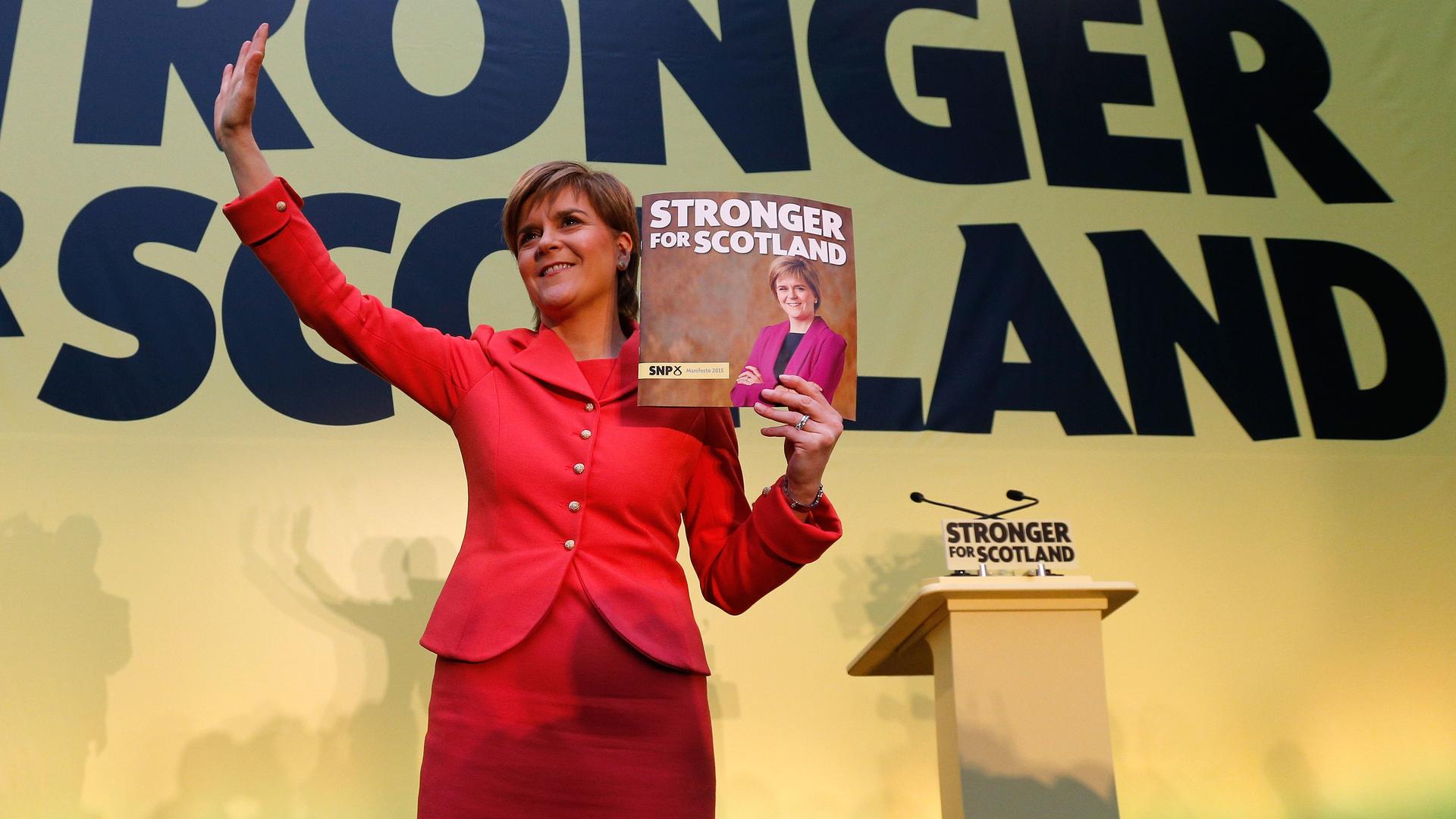The UK’s likely election kingmaker doesn’t even want to be part of the UK
Scottish National Party leader Nicola Sturgeon display the SNP's election manifesto in Edinburgh, Scotland, on April 21, 2015.
With less than two weeks to go until the UK elects a new parliament, polls have begun to tighten between Prime Minister David Cameron's Conservative Party and Ed Miliband's Labour Party. But it may be the Scottish National Party, led by Nicola Sturgeon, that emerges as the election's big winner.
That seemed unlikely just a few months ago, after an SNP-backed referendum on Scottish independence failed last September. But after taking the reins of both the party and the Scottish parliament from former leader Alex Salmond, who stepped down after the defeat, Sturgeon has driven the SNP to new heights in membership numbers — and in the polls. The Economist recently called her "Britain's most powerful female politician."
“Across Scotland, and for people from all sorts of political backgrounds — whether they’re Conservative, Liberal or Labour — they’ve all been switching to the SNP,” says Lesley Riddoch, a pro-independence political columnist from the city of Fife.
Riddoch believes Sturgeon's turn as a leader is long overdue, but she says it's not only the new first minister's poll numbers and commanding debate performances that are winning over Scots. Many people, she says, are gravitating towards Sturgeon and the SNP because they’re frustrated with the status quo and the three main parties in the UK.
“It’s very important to understand that the whole independence thing in Scotland was not ethnic — it was about a different conception about how to run a country,” she says, pointing out that Scots have a long tradition of voting to the left of the UK in general. “It’s an expression of that, and the frustration that Labour down south, when it gets into government, seems to get into bed with [special] interests and the country just lurches along in the same tired old way.”
Riddoch thinks Sturgeon's "really clear stance against austerity" is also resonating with Britons outside of Scotland. That means if Ed Miliband and Labour win the election, they may have to move closer to the SNP and, as Riddoch puts it, their "different idea about how to modernize Britain — all of Britain, since we’re still in it.”
This story is based on an interview from PRI's The Takeaway, a public radio program that invites you to be part of the American conversation.
